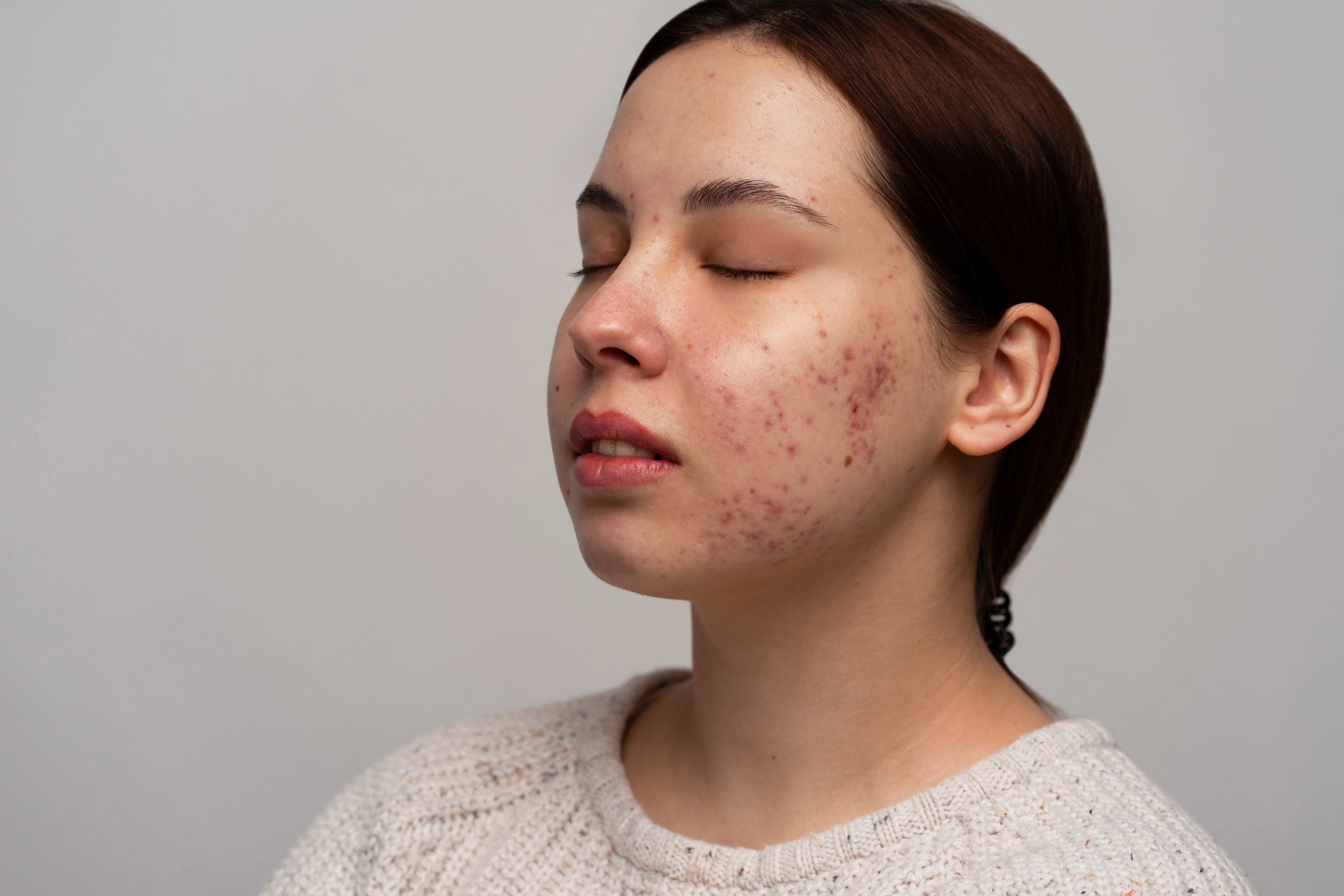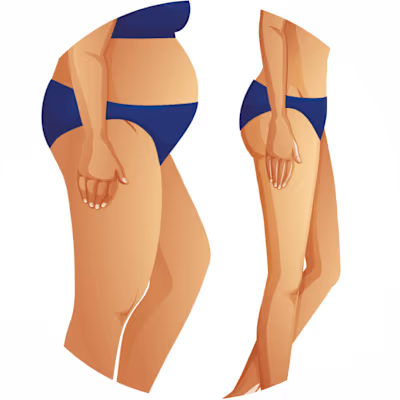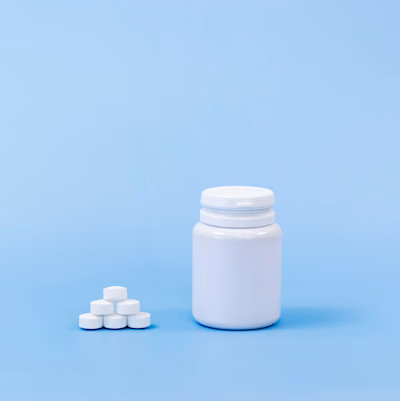Accutane | How It Works | What To Expect During Treatment
What is Accutane?
Accutane for Acne
How Does Accutane Work?
1. Reducing Sebum (oil) Production:
2. Anti-Bacterial Effects:
3. Normalizing Skin Cell Turnover:
Stages of Accutane
Week 1–2: Initial Adjustment Phase
Week 3–4: Early Response Phase
Week 5–8: Visible Improvement Phase
Week 9–12: Steady Progress Phase
Week 13–16: Maintenance and Fine-Tuning Phase
Week 17–24: Final Phase
Post-Treatment
Signs that Accutane is Working
Side effects of Accutane
Accutane Alternatives
FAQ
Does Accutane Work on Hormonal Acne?
Can I use Accutane for Cystic Acne?
Does Accutane Work for Body Acne?
Does Accutane Get Rid of Acne Scars?
Does Acne Come Back After Accutane?
Can I use Accutane for Mild Acne
What is Accutane?
Accutane is a brand name for isotretinoin, a powerful medication used to treat severe acne that hasn't responded to other forms of treatment. While Accutane itself was discontinued, isotretinoin treatments are still commonly referred to as Accutane.

Image by: Freepik
Accutane for Acne
Accutane is highly effective in treating all types of breakouts like cyst, blackhead, whitehead, pimples or nodules.
It's typically prescribed when other treatments, such as antibiotics and topical medications, have failed to clear up the skin.
How Does Accutane Work?
Accutane, or isotretinoin, works by altering the function of sebaceous glands and affecting cellular processes in the skin.
It does this by:
1. Reducing Sebum (oil) Production:
The oily substance produced by the skin is called sebum and can clog pores which will result in acne.
Accutane works by reducing the size of the sebaceous (oil) glands in the skin which results in a reduced production of sebum and reduces the likelihood of pore blockage and formation of acne.
2. Anti-Bacterial Effects:
While not primarily known for its antibacterial effect, it reduces the population of Propionibacterium acnes (P. acnes).
This bacteria is associated with acne and uses the sebum produced in the skin as nutrient supply.
Therefore, It achieves its antibacterial effect by decreasing sebum production, which reduces the nutrient supply for these bacteria.
3. Normalizing Skin Cell Turnover:
The process of skin cells maturing and shedding is known as keratinization.
In acne-prone skin, this process is often disrupted, leading to the accumulation of dead skin cells that block pores.
Accutane makes sure these cells are shed properly, preventing blockages.
So basically, Accutane works by shrinking sebaceous glands, reducing sebum production, normalizing skin cell turnover, reducing inflammation, and decreasing the population of acne-causing bacteria.
Stages of Accutane
Most people go through the following stages during treatment:
Week 1–2: Initial Adjustment Phase
Changes in Skin Texture: Your skin starts to feel dry and tight.
Initial Breakout sometimes called purging: You are likely to experience redness and appearance of new breakout as a result of your skin adjusting to the medication.
Dryness and Irritation: Lips, skin, and eyes start to feel dry. Moisturizers and lip balms are effective in managing these side effects.
Week 3–4: Early Response Phase
Continued Dryness: Your skin will get dryer and you might notice flaky skin. To combat this, make use of hydrating and gentle skincare products.
Further reduction in Oil Production: Skin oiliness starts to decrease.
Mood and Energy Levels: If you notice changes in your mood or feel fatigue, It is important that you discuss these changes with your healthcare provider.
Week 5–8: Visible Improvement Phase
Reduction in Acne: You start to notice a reduced number of new acne and healing of existing ones.
Decreased Inflammation: Your existing acne becomes less red and swollen.
Week 9–12: Steady Progress Phase
Significant Improvement: Your skin texture starts to improve with less acne present.
Monitoring: Always check in with your dermatologist to monitor progress and side effects.
Week 13–16: Maintenance and Fine-Tuning Phase
Decreased acne: As your acne continues to decrease, scarring and hyperpigmentation start to become more noticeable.
Clearer and stable skin : Your skin becomes overall clearer with less oily which means less breakouts pop up.
Blood Tests: Ensure you work with your healthcare provider for routine blood tests to monitor liver function and lipid levels.
Week 17–24: Final Phase
Near Clearance of Acne: Your acne should be near or totally clear by the end of the treatment course.
Focus on scars: While your skin continues to heal, it will be beneficial to focus on treating acne scars if it applies to you. Your dermatologist will work out a plan to fight scars and pigmentation.
Post-Treatment
Accutane continues to work 2 months after completion. Your skin will continue to clear up as residual acne fades away. Many patients continue to see improvements in their skin even after use.
Your skin begins to return to its pretreatment state in terms of moisture but often remains less oily than before treatment.
If you want to get on Accutane, it is important to keep in mind that everyone sees results at a different pace.
So here are some signs you should hang in there and not lose hope.
Signs that Accutane is Working
Reduction in oil production
Decrease in the number and severity of acne.
Less inflammation and redness
Smoother skin texture
Side effects of Accutane
Dry Skin
Dry Eyes
Chapped Lips
Nose bleeds
Back pain
Depression
Birth defects if taken during pregnancy.
Accutane Alternatives
Not everyone can or is willing to go through the side effects of Accutane. If you're on that boat, consider these alternatives :
Topical Treatments: Prescription creams and gels containing retinoids, benzoyl peroxide, or salicylic acid can effectively treat mild to moderate acne.
Oral Antibiotics: Medications like doxycycline or minocycline can reduce inflammation and bacterial growth associated with acne.
Hormonal Treatments: Birth control pills or anti-androgens like spironolactone can be effective for hormonal acne, particularly in women.
Other Oral Retinoids: Less potent oral retinoids may be an option for you.
Laser and Light Therapies: Procedures like laser therapy or blue light therapy can reduce acne severity.
FAQ
Does Accutane Work on Hormonal Acne?
Yes, Accutane can be effective for hormonal acne because it reduces oil production and improves severe acne that is often influenced by hormonal fluctuations.
Can I use Accutane for Cystic Acne?
Accutane is particularly effective for cystic acne, which is characterized by large, inflamed, and painful cysts. It works by shrinking the oil glands and reducing inflammation, helping to clear up deep cysts.
Does Accutane Work for Body Acne?
Yes, Accutane is effective for treating body acne, including acne on the back, chest, and shoulders. The medication reduces oil production and inflammation, which helps clear up severe and persistent acne on various parts of the body, not just the face.
Does Accutane Get Rid of Acne Scars?
Accutane primarily targets active acne and does not directly remove acne scars. However, by reducing breakouts, it can prevent new scars from forming. For existing scars, other treatments such as laser therapy, chemical peels, or microneedling may be recommended by your dermatologist.
Does Acne Come Back After Accutane?
Accutane often results in long-term remission of acne, but certain factors like type of acne and individual hormonal changes can cause recurrence. However, If acne does return, it is usually less severe. Follow-up treatments or a second course of Accutane may be necessary in some cases, but this varies from person to person. Regular skin care and maintenance treatments can also help manage and prevent recurrence.
Can I use Accutane for Mild Acne
While Accutane is typically reserved for severe acne, it can be prescribed for moderate acne if other treatments have failed. Due to its potential side effects, it's usually not the first line of treatment for mild acne.
Like this project
Posted Jul 19, 2024
Accutane | How It Works | What To Expect During Treatment
Likes
0
Views
31
Tags



